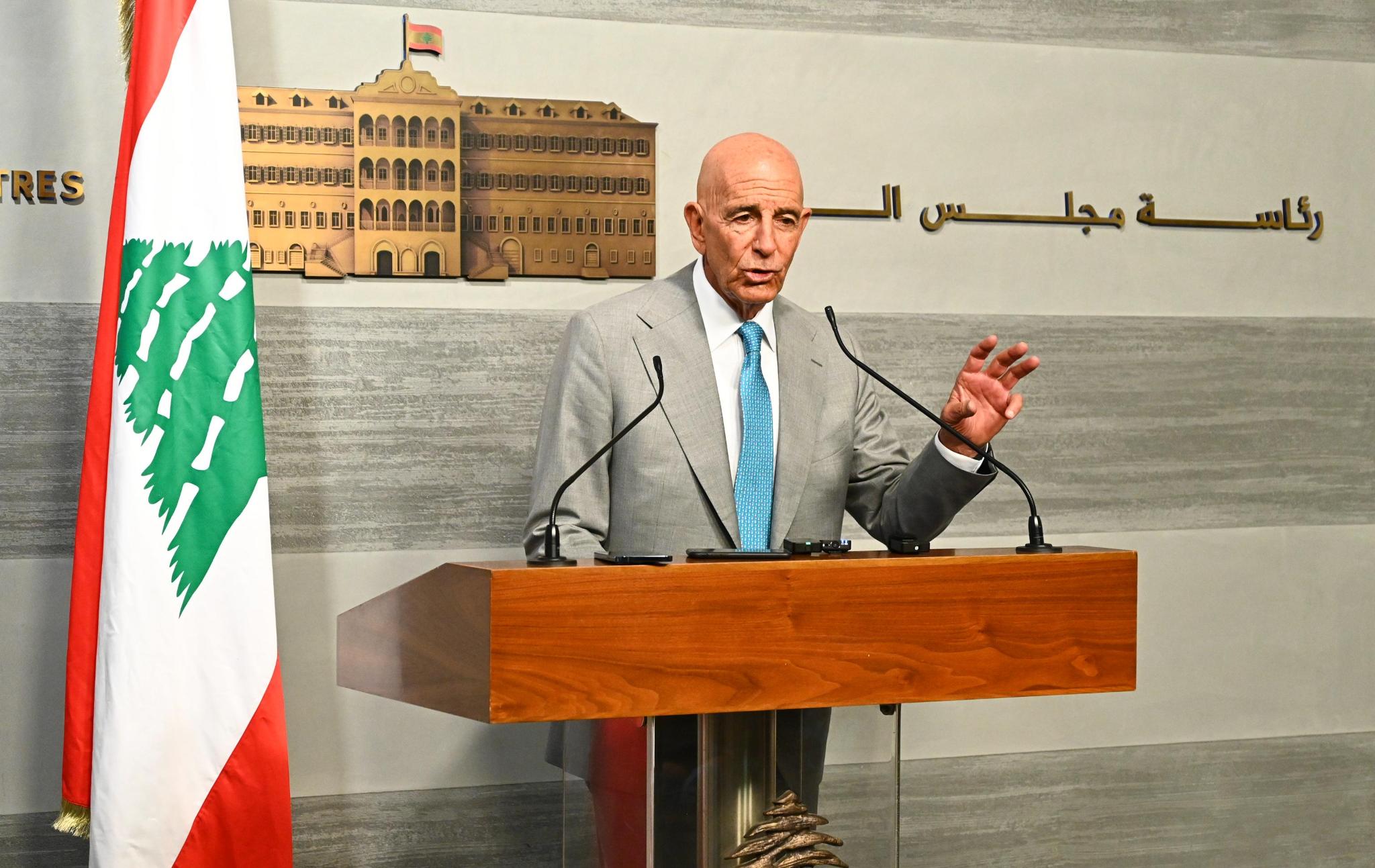After weeks of US demands and conflicting narratives about what is actually being proposed, the Lebanese cabinet has accepted the US proposal to fully disarm Hezbollah by year’s end. Hezbollah ministers as well as other Shi’ites walked out of the cabinet vote.
The US proposal, which is very recent, is starkly different from past US demands. It sets a four-stage process whereby Lebanon’s government establishes a full monopoly on all arms in the country by year’s end. In return, Israel is to stop their near-daily attacks on Lebanon and withdraw from Lebanese territory.
Just two weeks ago, the US demand was a full disarmament of Hezbollah within 90 days, which would’ve put the deadline, which envoy Tom Barrack said Israel established, in later November. At that time, Barrack had insisted the US had no business asking Israel to stop attacking Lebanon.

US Ambassador to Turkey Thomas Barrack in Lebanon| Image from Reuters
Now the deadline pushes through year’s end, and comes with conditions of Israel stopping their attacks and withdrawing, in stages, from the rest of southern Lebanon. Both these conditions were already established in November’s ceasefire, though Israel never complied with either.
Lebanese Information Minister Paul Marcos said the new agreement hinges on Israel actually living up to the commitments. It’s not clear from current reporting if Israel agreed to this new deal in the first place, or if it was just a US negotiating tactic and one they may or may not try to deliver on.
Barrack was perfectly comfortable to take credit for it, however, cheering the cabinet’s compliance as “historic, bold and correct.” and suggesting this amounted to Lebanon beginning “fully implementing the November 2024 Cessation of Hostilities agreement.”
That agreement required Hezbollah to stop firing on Israel, withdraw north of the Litani River, and for Israel to stop attacking Lebanon and withdraw back to Israel. Hezbollah hasn’t fired a single rocket at Israel since the ceasefire went into effect, and has handed over a large number of sites south of the river, though Israel maintains that more still exist. By contrast, Israel has launched thousands of attacks on Lebanon, and retains five military outputs built inside Lebanon after the pullout agreement was made.
The ability of the Lebanese government to actually disarm Hezbollah, despite the commitment, remains to be seen. Hezbollah has repeatedly ruled out giving up their arms while Israel is actively attacking, and their reaction to this will hinge a lot on if Israel fulfills their side of the deal, a big if. Hezbollah is a substantial force, and likely larger than Lebanon’s own security forces, so the ability of the Army to impose disarmament remains to be seen.


